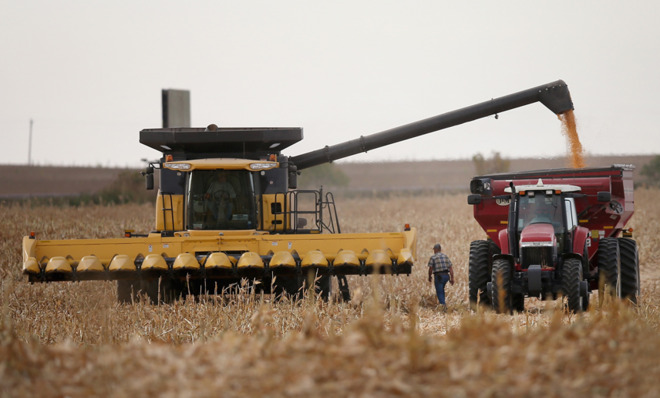Why Americans spend less of their income on food than any other country
Though Americans are famous for their healthy appetites, their food bill is proportionally low

A free daily email with the biggest news stories of the day – and the best features from TheWeek.com
You are now subscribed
Your newsletter sign-up was successful

Food prices have spiked in recent months, and U.S. consumers are freaking out.
In California, one woman couldn't believe she had to pay $38 for two steaks at Costco.
"I will be grilling more vegetables and shrimp this summer," Beverly Cabellon, 61, told CNBC. "And I may switch to pork and chicken."
The Week
Escape your echo chamber. Get the facts behind the news, plus analysis from multiple perspectives.

Sign up for The Week's Free Newsletters
From our morning news briefing to a weekly Good News Newsletter, get the best of The Week delivered directly to your inbox.
From our morning news briefing to a weekly Good News Newsletter, get the best of The Week delivered directly to your inbox.
Sorry, Beverly, but chicken prices are going up, too. And it's costing more to buy milk, eggs, and other staples as well.
In fact, the U.S. Agriculture Department expects prices to jump as much as 3.5 percent in 2014, an inconvenience some experts believe could snowball and potentially derail America's still-fragile economic recovery.
But Americans still spend less on groceries than any other country in the world.
That's right. According to data from the U.S. Agriculture Department, Americans shelled out 6.6 percent of their household income on food in 2012. The next lowest country is Singapore at 7.3 percent.
A free daily email with the biggest news stories of the day – and the best features from TheWeek.com
The highest? Pakistan, where consumers spend a whopping 47.7 percent of their earnings on food each year.
In Canada, food expenditures stand at 9.6 percent. Japan comes in at 13.8 percent, while Russians put 31.6 percent of their pay toward groceries.
So why does the U.S. pay so little? It's partly because American consumers are generally wealthier than those in many other countries, giving them more money overall to spend. But the big factor is food production.
U.S. agricultural productivity has generally risen over time.
Despite recent droughts, the United States has a booming agricultural industry. American farmers still produce a large amount of the grains, vegetables, and meats eaten here at home, and they do it efficiently and at a relatively low cost.
That keeps costs down for U.S. consumers.
America's capitalist culture also plays a role. Big grocers are competitive and are constantly cutting prices and offering deals to keep their customers and attract new ones.
This article, by Sarah Wolfe, originally appeared at GlobalPost.
More from GlobalPost...
-
 Political cartoons for February 19
Political cartoons for February 19Cartoons Thursday’s political cartoons include a suspicious package, a piece of the cake, and more
-
 The Gallivant: style and charm steps from Camber Sands
The Gallivant: style and charm steps from Camber SandsThe Week Recommends Nestled behind the dunes, this luxury hotel is a great place to hunker down and get cosy
-
 The President’s Cake: ‘sweet tragedy’ about a little girl on a baking mission in Iraq
The President’s Cake: ‘sweet tragedy’ about a little girl on a baking mission in IraqThe Week Recommends Charming debut from Hasan Hadi is filled with ‘vivid characters’